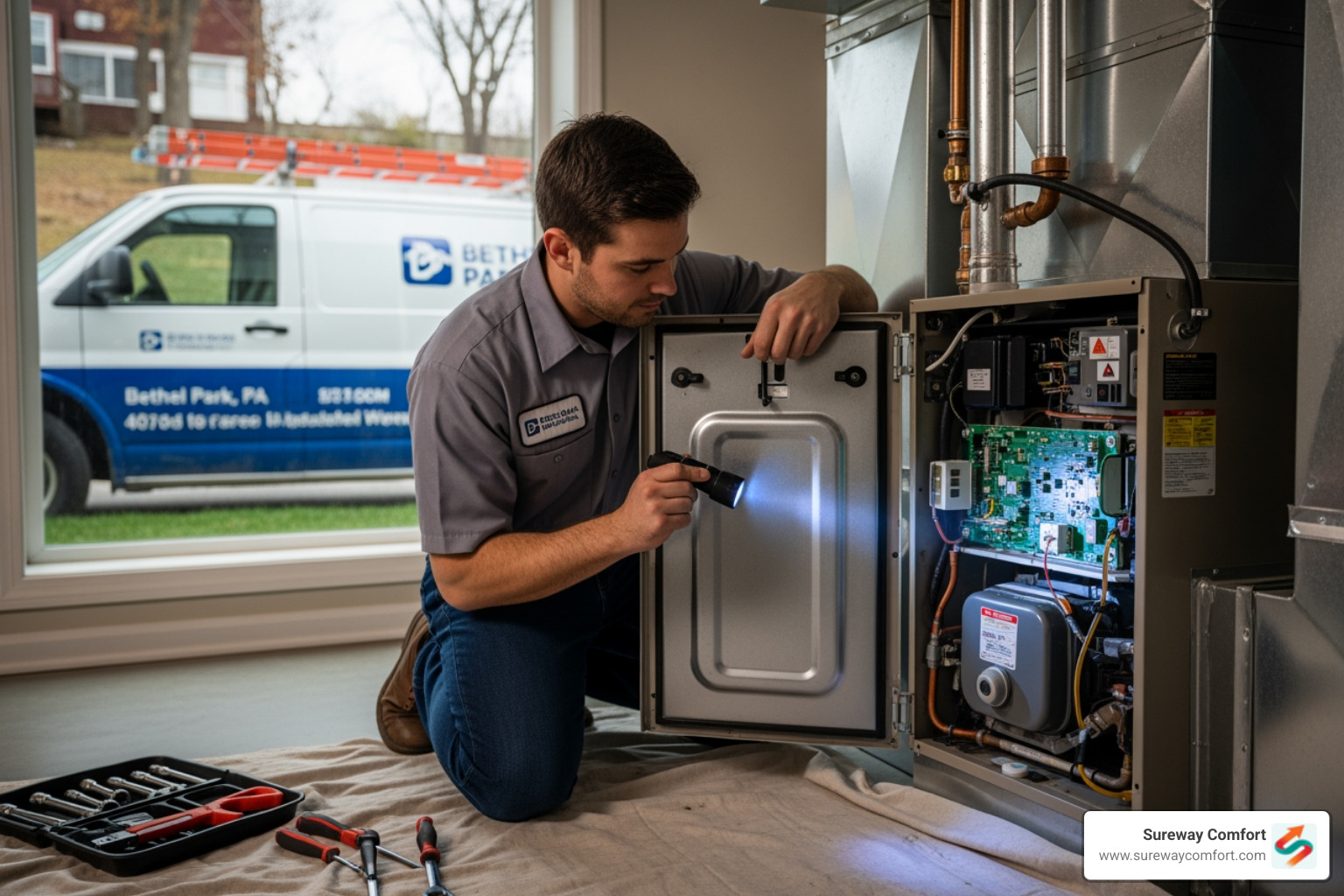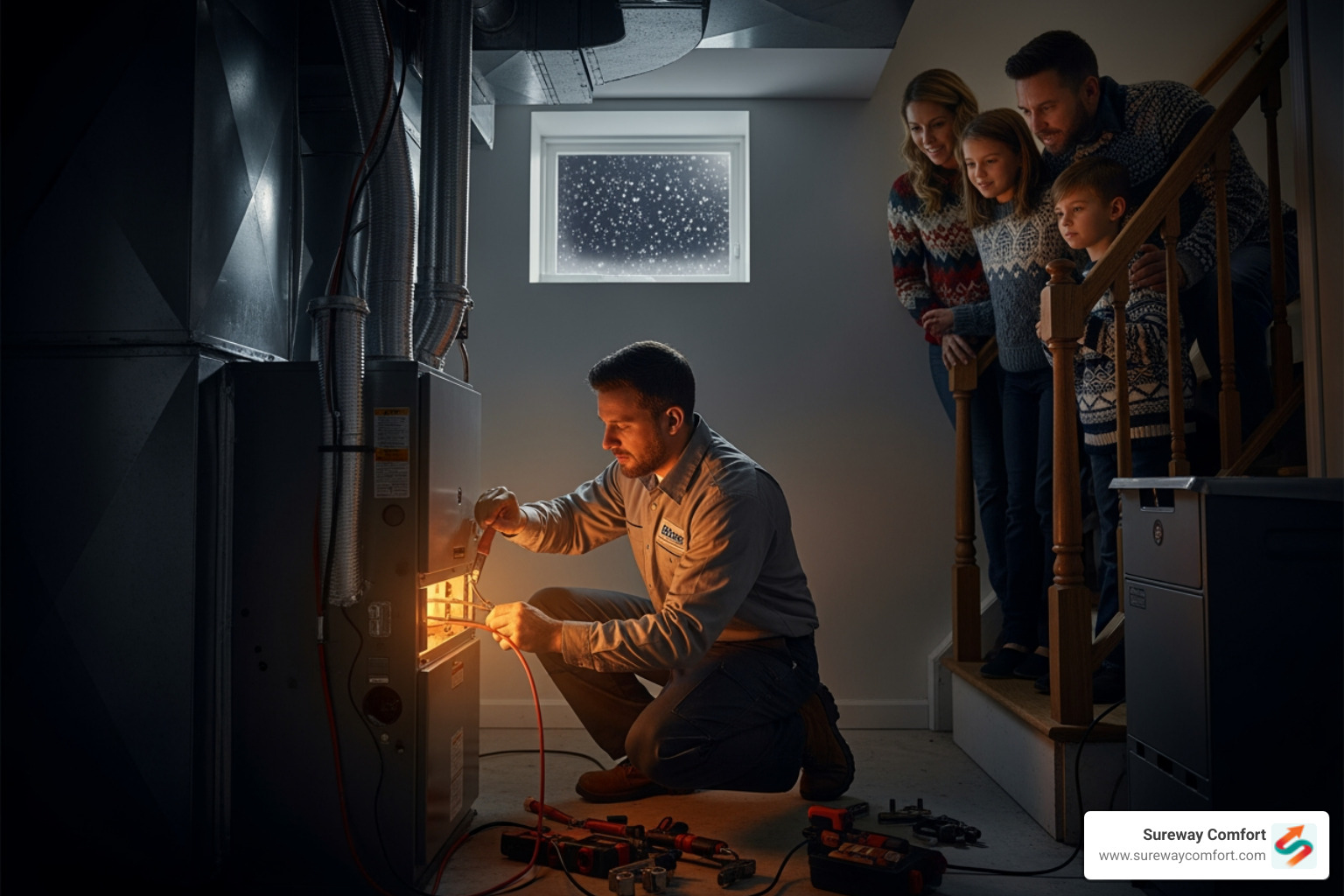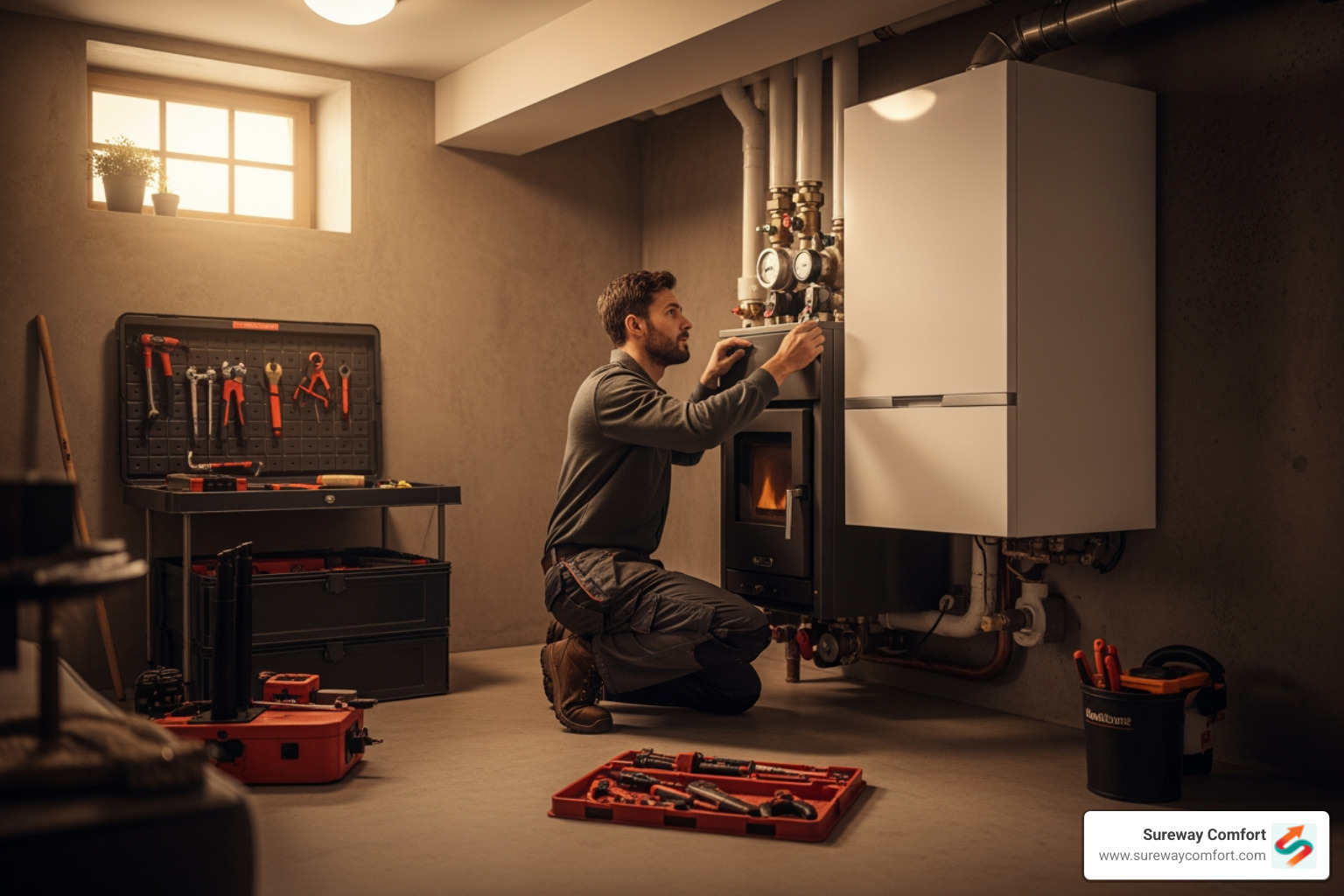When your air conditioner starts acting up in the middle of a hot Upper St. Clair summer, it’s more than just frustrating — it can make your home uncomfortable fast. One issue many homeowners run into is short cycling, which happens when the AC turns on and off repeatedly without completing a full cooling cycle. That constant stopping and starting strains your system and leaves your home feeling unevenly cooled.
Short cycling is especially noticeable during the hottest weeks of June when your cooling system should be doing the heavy lifting to maintain comfort. Letting it continue without fixing the root cause may lead to wear and tear on major components. Whether you hear your system constantly clicking on and off or the house just never seems cool enough, it’s smart to look into what’s causing the problem before it turns into a bigger issue.
Common Causes Of AC Short Cycling
In Upper St. Clair, short cycling tends to show up around the time homeowners crank the air to full power for the summer. If the AC can't keep up or keeps shutting down early, it’s usually a sign something isn’t working the way it’s supposed to. Here’s a closer look at the most common causes:
- Thermostat issues: If your thermostat is in direct sunlight or too close to a vent, it might think your home is cooler than it really is. That can make the system shut off too early. Programming errors or dead batteries can also trigger short cycling.
- Dirty air filters: When filters are clogged with dust, pet hair, and debris, the airflow gets restricted. This forces your system to work harder, which increases the chances of overheating and shutting down often.
- Refrigerant leaks: Low refrigerant levels can lead to fluctuating temperatures and pressure inside the system. That triggers safety switches to shut it down prematurely, causing that on-off pattern.
- Electrical issues: Loose wiring, a failing capacitor, or a faulty circuit board can cause an inconsistent power supply. That interrupts normal operation and leads to frequent cycling or early shutdowns.
As an example, we once talked to a homeowner in Upper St. Clair whose AC kept turning off after running for only five minutes. It turned out the thermostat sensor got knocked out of position during cleaning. It was reading the wrong temperature and causing the system to shut down too early.
Pay attention to any patterns that line up with these causes. If the system sounds like it’s working too hard or not long enough, take that as an early warning before the issue snowballs.
How To Troubleshoot AC Short Cycling
Even a small problem can snowball into a major repair if it's not addressed quickly. While it’s best to leave most fixes to trained technicians, there are a few things you can look over on your own before calling in help:
1. Check the thermostat
- Make sure it's not near direct sunlight or heat-producing appliances.
- Reset the temperature settings to a moderate level and watch if it triggers the short cycling again.
- If it's battery-operated, change the batteries and reboot the system.
2. Inspect and replace air filters
- Pull out the existing filter and hold it up to light. If you can’t see through it, it's too dirty.
- Replace filters every 1 to 3 months during constant use to keep airflow consistent.
3. Look around for refrigerant leaks
- Listen for hissing noises near the outside unit or check for frost buildup on the copper lines.
- If you notice unusual smells or puddles near connections, stop using the system and call a technician.
4. Check for electrical irregularities
- Flip the circuit breaker off and back on to reset the system.
- Look for any visible wear on the wiring around the indoor or outdoor units.
- If breakers continue to trip, stop resetting and request professional inspection right away.
These steps might help narrow down what’s going wrong with your system, but if the AC continues to short cycle after this check, it’s time to bring in someone trained to diagnose internal components. Letting the system run this way throughout the hottest weeks of summer in Upper St. Clair can cause parts like the compressor or fan motor to fail faster than usual. The sooner it’s taken care of, the better chance you have to avoid a full system breakdown.
When to Call Our Professionals
If your air conditioner in Upper St. Clair keeps short cycling even after basic troubleshooting, it’s time to get help from our professionals. A pattern of constant shut-offs isn't something to ignore. It often points to deeper mechanical problems that require testing tools and proper experience.
You’ll want to reach out if:
- The system doesn’t cool your home evenly or shuts off before reaching the set temperature
- You hear unusual noises like clicking, buzzing, or hissing when it starts or stops
- The circuit breaker trips repeatedly while the AC is running
- There are signs of water leaks, ice on the coils, or a sharp spike in your energy bills
Some issues, like a failing compressor or faulty sensors, can strain other components and lead to complete system failure. Short cycling wears out parts faster, forcing more repairs or even early replacement. Our technicians can check refrigerant levels, inspect electrical connections, and run diagnostic tests to pinpoint the exact cause. Trying to guess or delay service often leads to higher repair costs down the line.
Many homeowners assume that replacing a filter or resetting the thermostat might solve the whole issue. But if the problem keeps happening, it's clear something more serious is involved. Let our professionals find the true source of the issue and get it fixed correctly.
Preparing Your AC For A Trouble-Free Summer
A well-maintained AC system goes a long way toward preventing short cycling problems before they show up. One of the best things you can do every year before summer temperatures climb in Upper St. Clair is to schedule preventive maintenance.
Here’s what a professional tune-up can help with:
- Clear out built-up debris in and around the outdoor unit
- Check all ductwork and vents for blockages or restricted airflow
- Clean evaporator and condenser coils to improve cooling performance
- Tighten electrical connections and check components for wear
- Validate refrigerant charge to avoid pressure-related issues
- Test the thermostat for accurate readings and secure connections
Even newer systems benefit from scheduled service. Skipping seasonal maintenance causes wear on the machine and often results in unexpected repairs at the worst time. A tune-up addresses the little things that get overlooked, like slightly loose wiring or a clogged condensate line, both of which can cause short cycling if not addressed.
Think of it like getting your car checked before a long road trip. You wouldn’t leave home without checking the tires and oil. The same idea applies to your air conditioning system as the peak summer days arrive in Upper St. Clair.
Enjoy A Cooler Home This Summer
Short cycling is more than a minor annoyance. It’s a red flag that something is putting extra strain on your cooling system. Whether the cause is mechanical, electrical, or airflow related, fixing it promptly makes a difference.
If you’ve already checked the basics and your AC still acts up, it’s time to get help. A system that cycles too frequently not only runs less efficiently but also wears itself down faster. Getting the issue resolved early puts you in a better position to avoid costly repairs down the road. It’s a small issue that can easily turn big if ignored.
Plan ahead and avoid emergency breakdowns or long waits for service during midsummer when demand spikes. If your home in Upper St. Clair could use dependable cooling performance, addressing short cycling now is an important step toward a more reliable AC season.
If persistent short cycling is affecting your home comfort in Upper St. Clair, the experienced team at Sureway Heating Cooling Plumbing is here to help. Prompt attention can prevent more serious system damage, so consider scheduling expert AC repair in Upper St. Clair to restore system reliability and efficiency. For a quick estimate or to book a service visit, please contact us today.




























.avif)



